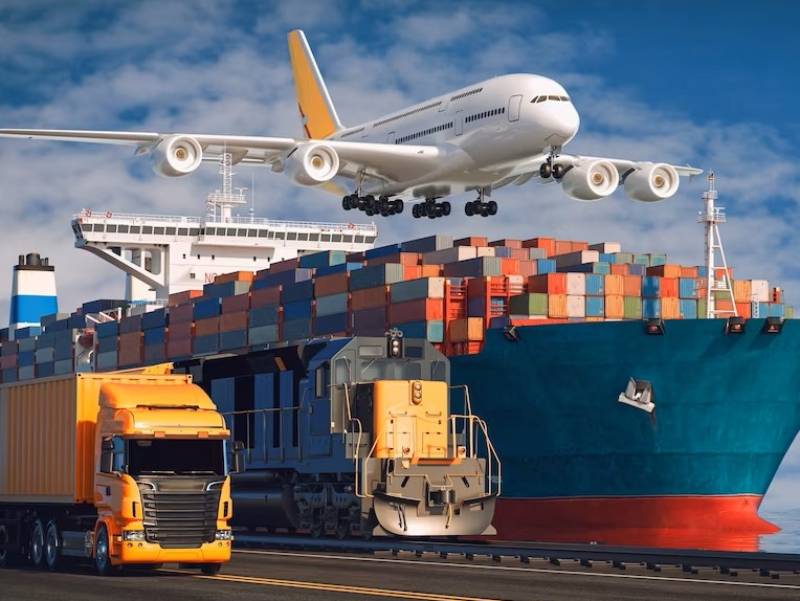Choosing the right logistics partner is one of the most important decisions a business can make. A professional logistics company not only ensures goods are delivered safely and on time but also helps optimize costs, streamline operations, and improve customer satisfaction.
In Vietnam’s competitive logistics market, where hundreds of providers offer similar services, understanding how to evaluate and select a trustworthy partner is crucial. This article outlines the key criteria to evaluate a professional logistics company and make an informed, long-term decision.
Industry Experience and Reputation
A reliable logistics provider should have proven experience in the industry. Companies with a long track record are more likely to have developed efficient processes, solid partnerships, and problem-solving skills.
When evaluating a logistics company, check:
-
Years of operation in domestic or international logistics
-
Reputation through customer testimonials, online reviews, or case studies
-
Industry recognition such as awards or certifications
In Vietnam, established logistics firms that have successfully served large manufacturers and exporters tend to provide more stable and consistent service quality.

Service Portfolio and Capabilities
A professional logistics company should offer a wide range of services to meet diverse business needs. This shows their ability to handle complex supply chain requirements.
Key Services to Consider
-
Freight forwarding (domestic and international)
-
Customs clearance and documentation
-
Warehousing and inventory management
-
Distribution and last-mile delivery
-
Value-added services such as packaging, labeling, or order fulfillment
If a provider offers end-to-end logistics solutions, it’s a strong indicator that they can efficiently manage your entire supply chain from origin to destination.
Technology and Innovation
In the age of Logistics 4.0, technology is a defining factor that separates traditional logistics firms from professional ones.
Technological Features to Look For
-
Real-time tracking systems to monitor shipments and delivery status
-
Warehouse management systems (WMS) and transport management systems (TMS) for efficient operations
-
Digital platforms for order management, billing, and customer support
-
Data analytics and automation for better planning and cost control
A tech-driven logistics company not only improves transparency and speed but also reduces the risk of human error and delays.
Network and Coverage
The strength of a logistics provider’s network directly affects service quality and delivery time. A professional company should have a wide and reliable network, both domestically and internationally.
In Vietnam, this means having:
-
A strong presence in key logistics hubs like Ho Chi Minh City, Hanoi, and Hai Phong
-
Partnerships with reputable international carriers and freight forwarders
-
Multiple transport modes such as road, sea, air, and rail for flexibility
A broad logistics network allows companies to offer faster delivery, better rates, and more routing options.
Compliance and Certifications
Professional logistics providers operate according to international standards and local regulations. Compliance ensures safety, reliability, and transparency throughout the logistics process.
Important Certifications Include
-
ISO 9001: Quality management
-
ISO 14001: Environmental management
-
C-TPAT or AEO: Customs security and trade partnership programs
-
FIATA or IATA membership for global freight forwarding
In addition, a legitimate company should have all necessary business licenses and insurance coverage for goods in transit.
Customer Service and Communication
Excellent customer service is a hallmark of a professional logistics company. Responsive, proactive communication helps build trust and ensures that issues are resolved quickly.
What to Evaluate
-
Availability of customer support (24/7 or business hours only)
-
Professionalism and responsiveness of the support team
-
Ability to provide timely updates and handle emergencies
A reliable provider should act as a partner, not just a vendor — focusing on long-term cooperation and mutual success.
Pricing and Cost Transparency
While cost is always an important factor, the cheapest option is not always the best. A professional logistics company provides competitive pricing along with complete transparency.
Look for companies that offer:
-
Detailed quotations with clear breakdowns of all charges
-
No hidden fees or unexpected surcharges
-
Flexible pricing models for different shipment volumes or routes
Transparent pricing helps businesses forecast logistics costs accurately and avoid unnecessary financial risks.
Flexibility and Scalability
In a fast-changing business environment, logistics needs can shift quickly. A professional logistics provider should be flexible enough to adapt to new demands, seasonal peaks, or urgent shipments.
Signs of a Scalable Logistics Partner
-
Ability to handle increased shipment volumes
-
Multiple transport and storage options
-
Willingness to customize solutions for each client
Scalability ensures that as your business grows, your logistics partner can grow with you.
Safety and Risk Management
A trustworthy logistics company must prioritize safety in transportation, warehousing, and handling. Effective risk management protects goods from damage, loss, or delays.
Evaluate whether the provider:
-
Has insurance coverage for goods in transit
-
Implements safety training for employees
-
Uses secure tracking systems to prevent theft or misrouting
Safety measures demonstrate professionalism and reduce the likelihood of financial and reputational losses.
Performance Metrics and Continuous Improvement
Professional logistics companies monitor and analyze their performance regularly. They use Key Performance Indicators (KPIs) to measure success and identify areas for improvement.
Common logistics KPIs include:
-
On-time delivery rate
-
Order accuracy
-
Damage or loss ratio
-
Customer satisfaction scores
Firms that consistently evaluate and optimize performance are more likely to deliver reliable, high-quality services over time.
Conclusion
Evaluating a professional logistics company involves more than just comparing prices. Businesses should consider experience, technology, network coverage, certifications, service quality, and customer care to find the right long-term partner.
A well-chosen logistics provider not only moves your goods efficiently but also becomes a strategic ally in optimizing your entire supply chain. In Vietnam’s rapidly evolving logistics landscape, selecting a partner that combines reliability, innovation, and transparency is the key to sustainable growth.
Từ Khóa:
- professional logistics company
- logistics evaluation criteria
- logistics services Vietnam
- freight forwarding Vietnam
- logistics provider
- supply chain management
- transportation company Vietnam
- logistics technology
- logistics pricing transparency
- logistics certifications
- logistics customer service
- Vietnam logistics industry

